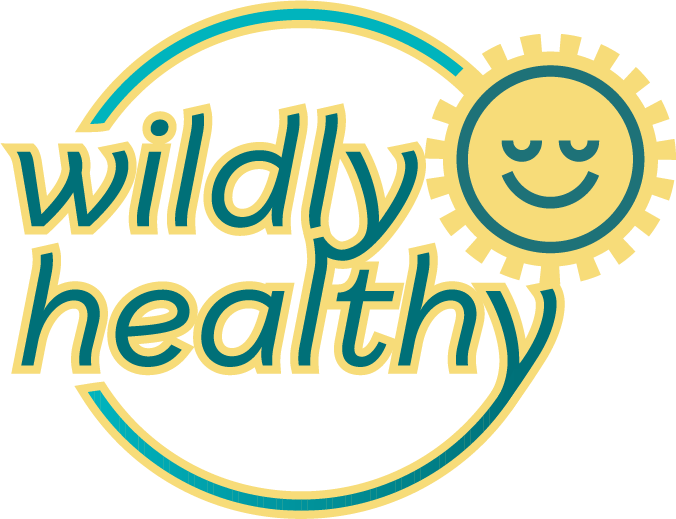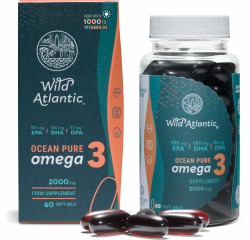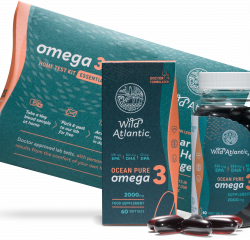Startling disclosures from previously hidden sources that Prozac is no more effective than a placebo in treating clinical depression have met with reactions ranging from surprise to despair.
However, these revelations are neither new nor surprising.
Unconvincing outcomes from earlier trials raised serious questions about the efficacy, as well as safety, of new-generation antidepressants, and unheeded warnings to this effect, over two decades, have received minimal media coverage and a meagre response from the health industry.
Recent findings not only vindicate previously voiced concerns but call for serious attention to be given to alternative therapies that are safer and show promise of greater efficacy and tolerability.
Fresh Data
The emergence of new clinical data, previously hidden and thus unpublished, released by the Food and Drug Administration (FDA) under the freedom of information ruling, has enabled researchers from Hull University to evaluate the efficacy of Prozac, a block-buster drug widely prescribed to alleviate the symptoms of depression.
These findings, now receiving worldwide media coverage, suggest that Prozac and its class of selective serotonin reuptake inhibitors (SSRIs) are no more effective than a placebo in the clinical setting, a conclusion vociferously contested by Eli-Lilly, the drug’s manufacturer, who claim that “extensive scientific and medical experience has demonstrated it is an effective antidepressant”.
The assertions by the Hull research team not only call into question the future role of Prozac and similar drugs but also the role of regulatory authorities, such as the FDA, and their obligation to review all data, unpublished as well as published, before granting licence for clinical use.
Role of Regulatory Bodies
Lead researcher Prof. I. Kirsh rightly calls into question the current system of reporting drug trials.
His concerns were echoed by Dr Kendall, Deputy Director of the Royal College of Psychiatrists Research Unit, when he criticised drug manufacturers for withholding negative research findings and publishing only results that favour their products.
Dr Richard Turner (Association of the British Pharmacological Society) defended the licensing bodies claiming that “all the evidence” was routinely considered before granting licences.
However, the historical facts do not support this contention.

The Historical Facts
In the mid-1990’s Swedish Drug Regulatory authorities scrutinised all available data, published and unpublished, measuring SSRI efficacy against placebo, in the treatment of depression.
In 42 placebo-controlled studies, published between 1983 and 1999, half (21 studies) were found to be less effective than placebo, and of those showing an unfavourable outcome for SSRIs, only 6 of the 21 studies were published!
The report (BMJ 2003) revealed strong evidence of what the authors called, “selective publication” by the pharmacological industry. The paper describes the results as “EVIDENCE B(I)ASED MEDICINE”.
In 2000 Khan et al assessed depressive symptom reduction in studies of 7 new SSRI drugs, using the FDA database. In the nearly 20,000 participants studied symptom reduction measurements were 40.7% in those using investigational drugs and 30.9% in the placebo group.
The SSRIs produced a mere 9.8% higher rate of symptom reduction than the placebo.
In 2005 Moncrieff and Kirsch reviewed the evidence for the efficacy and safety of similar antidepressants in adults (BMJ 2005) and concluded that SSRIs do not have a clinically meaningful advantage over placebo, a finding “consistent with other recent meta-analyses”
They added, “evidence that antidepressants are more effective in more severe conditions is not strong”.
These conclusions, stated the researchers, indicate “the need for a thorough re-evaluation of current approaches to depression and further development of alternatives to drug treatment”
They concluded, “since antidepressants have become society’s main response to distress, expectations raised by decades of their use will also need to be addressed”
Despite these evidence-based recommendations, newer drugs (SSRIs and SNRIs) continue to flood the market as prescriptive panaceas for mental health disturbances.
Alternative Therapies
The recognition by health authorities that prescription drugs are not the sole remedy for mental health management has prompted calls to explore cognitive behaviour therapy (CBT) as a preferable alternative.
The National Institute of Clinical Excellence (NICE) now offers guidelines for assisted management of moderate depression, which incorporates exercise and CBT, but sadly, NICE neglects to include the role of nutrition in regulating normal brain function.
Dr Terry Lynch has long been a protagonist in listening and talking with emotionally disturbed patients.
In “Beyond Prozac” he catalogues long-standing enquiries into the efficacy of drug therapy and offers valuable insights into the needs and expectations of patients.
Drs. Michael Corry and Aine Tubridy, likewise, demonstrate the healing value of approaching depression as an emotion and not a disease.

Nutrition and Exercise
Several clinical studies underscore the role of nutrients in correcting mental health disturbances.
The Brain Bio Centre in the UK has successfully demonstrated the benefits of correcting circulating homocysteine, glucose and omega 3 essential fatty acids deficiency, as well as providing exercise programmes, sunlight exposure and psychotherapy to patients who are depressed.
The benefits of high-intensity exercise for depressive symptoms have been reported by Australian researchers (J of Gerontology, vol 60, 2005).
The case for polyunsaturated fatty acids (PUFA-n3) as a safe and effective mood stabiliser continues to find widespread biological and clinical support.
The groundbreaking discovery in 1993 of their promising benefits in treating depression, bipolar disorder and schizophrenia has launched a large-scale serious enquiry into their multifunctional properties for correcting brain disorders with a growing tide of evidence strongly suggestive of their efficacy and safety.
Dr Andrew Stoll (The Omega-3 Connection-2000) documents these continuing successes.
Omega-3
The beneficial effects of the PUFA-n3 (Omega 3) arise from the biological properties of docosahexaenoic acid (DHA, n3) and eicosapentaenoic acid (EPA, n3) which are operative at various levels of brain function.
Not only do they maintain healthy levels of neurotransmitters such as serotonin, nor-adrenalin, acetylcholine, glutamate and dopamine, but they have been shown also to regulate numerous vital enzymes , such as adenyl cyclase and protein kinase A, that aid neuro protection and promote neurite growth. (Nature, 2006:440; 813-7)
DHA has been shown to improve the permeability of cell membranes and render them less susceptible to lipid peroxidation and damaging oxidative stress.
Dietary intake of DHA can therefore provide vital protection against damage to these cells.
Brain cell survival has also been shown to be dependent on phosphatidylserine which in turn is dependent on DHA supplies. (Lipids 2001)
The particular benefits of DHA in cell signalling and genetic control that inhibit proinflammatory cytokines may reveal novel strategies for treating neurodegenerative disorders caused by inflammation. (Biochem.Biophys.RessComm. 2005 Oct 28;336(3);909-17
Irish Psychiatrists Drs. Syed and Garland refer to numerous reports linking low consumption of n-3 food sources to the currently high prevalence of depression, bipolar disorder and impulse disorder-related phenomena such as suicide and homicide.
In a 12-week supplemental study with 50 patients, they reported highly significant reductions in depression, perceived stress and suicidal thoughts by those participants using 1.5g EPA and 1.0 g DHA daily.
Omega-3 Vs Prozac
A comparison of the therapeutic effects of Omega 3 and fluoxetine (Prozac) was reported in the Australian and NZ Journal of Psychiatry (2008;42,192-8).
The products were compared separately and in combination, with the most favourable results arising from the combination therapy (81%). The clinical outcome for participants using Omega 3 was slightly better (56%) than for those using Prozac (50%).
In a separate trial conducted at Teheran University of Medical Sciences, a comparison of Prozac and Omega 3 resulted in a slightly better, though not highly significant, outcome for patients using Omega 3.
Symptom alleviation using the standard Hamilton Depression Rating Scale (HDRS) was 64% for Omega 3 and 57% for Prozac.
In other trials exploring the potential role of Omega 3 fatty acids in mood disorders Freeman (J.Clin.Psych.2006;67:1954-67) and Parker (Am J.Psych 2006;163:969-978) record distinctive benefits from its use.
Depression-Emotion or Disease?
Dr Michael Corry and Dr Aine Tubridy provide a revolutionary perspective of mood disorders in their insightful book (Depression-An Emotion not a Disease) and offer a novel approach to management by empowering the sufferer with insights and options that are non-pharmacological.
They stress the importance of a holistic approach to mental disturbances which includes a variety of modalities, including CBT, nutrition, exercise and others.
This is a must-read for family doctors, psychotherapists and psychiatrists, and also for anyone suffering from a mood disorder.






























